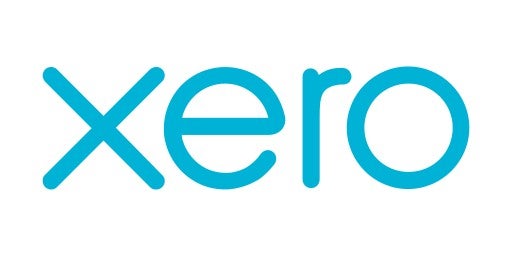Here are my top hotel accounting software that can help
The best hotel accounting software should do more than just track income and expenses. I look for tools that can handle the basics — like financial reporting and revenue management — while also offering extras that actually reduce workload. Built-in payroll, assisted bookkeeping, and integration with reservation systems can make a big difference, especially if you’re trying to keep operations lean and efficient.
- Best for overall hotel accounting software: Cloudbeds
- Best for back office automation: Otelier
- Best for hotels that need unlimited users: Xero
- Best for hotels that manage in-house payroll: QuickBooks Online
- Best for hotel-specific bookkeeping assistance: M3
Why you can trust TechRepublic
At TechRepublic, we publish high-quality, independently researched reviews created by writers who are experts in the fields they cover. Our contributors include seasoned IT professionals, certified accountants, software developers, and industry consultants — people who have worked directly with the tools they evaluate. Every article is built on firsthand experience, in-depth testing, and a deep understanding of what businesses and tech teams actually need to make confident, informed decisions.
Top hotel accounting software comparison
| Cloudbeds | |||||
| Otelier | |||||
| Xero | |||||
| QuickBooks Online | |||||
| M3 |
Cloudbeds: Best for overall hotel accounting software

Cloudbeds is a top pick for hotels that rely on online bookings and want everything in one place. It streamlines reservations, housekeeping, payments, and accounting through a single platform, cutting down on manual work and saving time across your team. If you’re looking for hotel accounting software that goes beyond the basics, Cloudbeds delivers real operational value.
You can integrate with POS systems, compliance tools, and reporting platforms to build a setup that fits your workflow. For hoteliers focused on forecasting and real-time insights, this hospitality accounting software brings it all together. Otelier may offer more depth for budgeting, but Cloudbeds wins on day-to-day efficiency.
Pricing
Cloudbeds is quote-based. We recommend contacting Cloudbeds for pricing details.
Features
- Dynamic pricing optimization with custom rules and real-time alerts
- Competitor price tracking with alerts for market changes
- Customizable dashboards with real-time, hospitality-specific insights
- Centralized multi-property reporting with filters and grouping options
- Streamlined reservation tools, including a drag-and-drop calendar and one-click actions
- Over 200 partner integrations and an open API for workflow customization
- Built-in payment processing to reduce manual entry and errors
- Cloud-based multi-property management with quick toggling between locations
Pros and cons
| Pros | Cons |
|---|---|
| Has a booking engine | Limited native accounting features compared to full-service platforms |
| Offers features for reservations, payments, accounting, and housekeeping | May require third-party accounting software for advanced financial reporting |
| Has strong multi-property management and reporting features | May be overbuilt for very small properties or those with minimal tech needs |
Otelier: Best for back office automation

Otelier is a smart pick for hotels that want to automate routine back-office work without losing control over the details. It reduces time spent on repetitive tasks like nightly reporting, income journaling, and OTA reconciliation while keeping everything organized in one place. For teams managing multiple locations, it’s a practical way to bring consistency and accuracy across the board. It earns a top spot in my list of best hotel accounting software for its operational focus.
I also like how Otelier turns scattered hotel data into usable insights. Its dashboards help you spot trends, fine-tune budgets, and plan ahead with confidence. While it doesn’t offer full accounting functionality, it pairs well with hospitality accounting software like QuickBooks or Cloudbeds to fill in the financial gaps.
Pricing
Otelier is quote-based. We recommend contacting Otelier for pricing details.
Features
- Standardize budgeting processes across multiple properties
- Automate data entry, forecasting, and financial tasks
- Reduce manual errors and prevent lost revenue
- Maintain accurate, transparent financial records
- Run what-if scenarios for smarter decision-making
- Aggregate data into unified, customizable dashboards
- Track revenue metrics and financial KPIs in real time
- Identify trends to optimize pricing and performance
- Collaborate securely using live, accurate data
- Adapt forecasts quickly with predictive analytics
Pros and cons
| Pros | Cons |
|---|---|
| Designed specifically for hotel operations, not just generic business workflows | Limited native accounting functionality; requires pairing with accounting software |
| Is used by top hotels like Marriott and Accor | May be too complex for smaller hotels or single-location operations |
| Offers strong visibility across portfolios, ideal for multi-property operators | Reporting setup and dashboard customization can take time to configure |
| Supports collaboration between finance, ops, and ownership with shared data access | Upfront implementation may require internal training and change management |
| Scales well as hotel businesses grow in size or complexity |
Xero: Best for hotels that need unlimited users

Xero is a strong fit for hotels that need full accounting functionality and flexibility for large teams. It allows unlimited users, making it ideal for operations where multiple staff need access to the books. What stands out is its built-in fixed asset tracking, which is especially useful in hospitality where properties manage everything from furniture to equipment. Among the best hotel accounting software options, I like Xero because it delivers the accounting depth that many hotel software often don’t have.
It also integrates with a wide range of hotel-specific tools, including Cloudbeds, Little Hotelier, Preno, and RoomRaccoon. If your priority is clean, compliant financials with support for things like depreciation, expense management, and multi-property reporting, Xero checks all the boxes. That said, if you’re not focused on accounting-specific tools, hospitality accounting software like Cloudbeds might be a better fit for front-desk and reservation workflows.
Read our Xero review.
Pricing
- Early: $20 per month for unlimited users; 20 invoices and five bills only
- Growing: $47 per month for unlimited users, invoices, and bills
- Established: $80 per month for unlimited users, invoices, and bills
Features
- Unlimited users with customizable permission levels
- Fixed asset tracking with depreciation schedules
- Automated bank feeds and reconciliation
- Invoicing, billing, and expense tracking tools
- Real-time financial reporting and dashboards
- Payroll processing available via Gusto
Pros and cons
| Pros | Cons |
|---|---|
| Scales easily with large teams thanks to unlimited user access | No built-in reservation or property management features |
| Well-suited for hotels with complex asset management needs | Learning curve for teams without accounting experience |
| Clean, modern interface that's easy for non-accountants to navigate | Some advanced features (like payroll) require third-party add-ons |
| Widely supported by accountants and bookkeepers, making collaboration easy | Lacks industry-specific reports for hospitality out of the box |
| Strong integration ecosystem, especially with hotel-friendly apps |
QuickBooks Online: Best for hotels that manage in-house payroll

QuickBooks Online is one of the most widely used accounting platforms in the US. It’s versatile enough to handle a range of industries thanks to features like class tracking, which lets you tag and monitor hotel-specific expenses. I also like that it offers built-in payroll and tax filing through Intuit’s broader suite of tools. If you’re looking for hotel accounting software with strong financial capabilities, QuickBooks is a dependable option.
Another advantage is the large network of US-based ProAdvisors, which makes it easy to find expert help when needed. But while it excels at accounting, it doesn’t offer hotel-specific tools like reservation or housekeeping management. If that’s what you’re after, Cloudbeds may be a better fit. For a deeper hospitality focus and access to outsourced bookkeeping, hospitality accounting software like M3 is also worth considering.
Pricing
- Simple Start: $35 per month for one user only
- Essentials: $65 per month for three users only
- Plus: $99 per month for five users only
- Advanced: $235 per month for 25 users
Features
- Class and location tracking for separating hotel departments or properties
- Expense tracking to monitor costs by category or service area
- Invoicing tools for events, group bookings, or vendor billing
- Built-in payroll processing via QuickBooks Payroll
- Tax filing support, including 1099 contractor management
- Large network of certified ProAdvisors for bookkeeping assistance
Pros and cons
| Pros | Cons |
|---|---|
| Widely adopted and trusted across US-based businesses | Lacks hotel-specific features like reservation or housekeeping tools |
| Flexible enough to support hotel departments, locations, and revenue streams | Reporting can require customization to fit hospitality use cases |
| Built-in payroll and tax tools reduce reliance on third-party services | May be overpowered for very small properties with simple needs |
| Easy access to certified ProAdvisors familiar with hotel accounting | Add-ons (like payroll or advanced reporting) can increase total cost |
| Integrates with many hospitality tools for a more complete workflow |
M3: Best for hotel-specific bookkeeping assistance

I like M3 for hotels that want both accounting software and hands-on support. With access to a team of hospitality-focused accountants, you can scale your back office without hiring in-house. Whether you’re reducing internal workloads or need expertise as you grow, M3 helps you stay compliant and efficient. It’s a strong option in the hotel accounting software category for hotels that want outsourced help without sacrificing control.
What also stands out is M3’s flexibility in how it handles reporting and tax setup. Its custom Report Writer, built-in 1099 and 1096 forms, and detailed import and export tools give you the control needed to manage complex financials. But if you’re looking for reservation management and housekeeping features, hospitality accounting software like Cloudbeds may be a better all-in-one fit.
Pricing
M3 is quote-based. We recommend contacting M3 for pricing details.
Features
- Outsourced bookkeeping from hospitality accounting professionals
- Customizable financial reporting with built-in Report Writer
- Automatic generation of 1099 and 1096 forms for US tax compliance
- Support for multiple tax types, including sales, VAT, and GST
- Data import/export for journal entries, checks, invoices, and budgets
- Cloud-based access for secure, remote financial management
Pros and cons
| Pros | Cons |
|---|---|
| Purpose-built for the hospitality industry, not a generic accounting tool | No front-office or reservation management features |
| Outsourced bookkeeping option gives hotels flexibility as they scale | Interface may feel dated compared to newer SaaS platforms |
| Strong fit for multi-property operators needing centralized financial control | May require training for teams unfamiliar with hospitality-specific accounting |
| Helpful for hotels without a full in-house accounting team | Best suited for hotels with more complex financial needs |
| Trusted by management companies and independent hoteliers alike |
How do I choose the best hotel accounting software for my business?
Choosing the best hotel accounting software is about finding the right fit for your property’s size, staffing, and day-to-day workflows. Whether you’re running a single boutique hotel or managing a multi-property portfolio, the right platform can reduce manual work, improve accuracy, and help you scale.
Here are five key factors to consider before making your decision.
1. What are your operational needs?
Start by identifying where you need support: hotel-specific tasks, accounting workflows, or both. Hotel-focused features might include online booking, housekeeping coordination, or room availability tracking. On the accounting side, you might prioritize invoicing, billing, payroll, or tax reporting. Some platforms combine both sets of features, while others focus more deeply on one area. Defining your needs upfront helps narrow down the options and avoid overpaying for tools you won’t use.
2. How big is your hotel?
Smaller hotels or boutique properties often need straightforward solutions with essential features and simple reporting. In contrast, mid-size and large hotels usually require more robust software to handle higher transaction volumes, team collaboration, and more complex workflows. Think about whether your team will benefit from automation, department-level tracking, or advanced forecasting tools — and whether your current software can scale as your business grows.
3. How many hotels are you managing?
Managing multiple properties brings unique challenges. Look for software with centralized dashboards, multi-property reporting, and user permission controls across locations. The ability to group, filter, and analyze data at both the property and portfolio level can save hours of manual work and give you clearer financial visibility across your business.
4. Do you have in-house accounting staff, or will you outsource?
If your team includes accountants or bookkeepers, you’ll want software that gives them full control over journal entries, reconciliations, and tax compliance. If you’re outsourcing all or part of your accounting, ease of collaboration becomes more important. Look for tools that offer secure data sharing, cloud-based access, and customizable user roles so your external team can work without needing constant hand-holding.
5. What integrations do you need with your existing systems?
Hotel operations often involve a mix of systems — property management, POS, payroll, reservation platforms, and more. Your accounting software should integrate cleanly with the rest of your tech stack to reduce duplicate entry and sync real-time data. Pay close attention to available integrations or APIs, especially if your business relies on a specific reservation system or tax platform.
Methodology
When evaluating the best hotel accounting software, I focused on what hotel operators actually need—reliable financial tools, smooth operations, and flexible support. My goal was to find solutions that not only meet core accounting requirements but also support the real-world complexity of running a hospitality business. Here’s how I narrowed it down:
- Pricing transparency and flexibility: I prioritize vendors that clearly display their pricing, which makes it easier for busy hotel owners and finance leads to compare options quickly. However, I understand that some platforms offer highly customized solutions, especially for multi-property portfolios. In those cases, I’m fine with custom quotes as long as the provider is upfront about value and scalable pricing models.
- Core accounting capabilities: Any software I recommend must handle the basics well—things like invoicing, bill payment, general ledger, bank reconciliation, and cash flow tracking. If a hotel can’t easily track its income and expenses, it’s a nonstarter. Bonus points if the platform supports class or location tracking to help hotel owners separate financials by department or property.
- Hotel-specific operational features: Accounting software that also supports hotel operations stands out in my book. I looked for tools with built-in or integrated features for managing bookings, housekeeping, room availability, or personnel. While not every hotel needs an all-in-one system, platforms that streamline front- and back-office workflows make a real difference in day-to-day efficiency.
- Bookkeeping support options: Not every hotel has an in-house accounting team, so I gave preference to platforms that offer access to bookkeeping professionals. Whether that’s in-house support, a certified advisor network, or full-service outsourcing, I see this as a major plus — especially for smaller hotels or those scaling fast.
- Ease of use and training resources: Even the best software falls short if it’s too complicated to implement. I considered how intuitive the platform is for both technical and non-technical users. I also gave higher marks to providers offering onboarding support, training materials, and accessible customer service. Hotels often can’t afford long learning curves or downtime.
- Integration and ecosystem compatibility: Finally, I looked at how well the software connects with other hospitality tools — property management systems (PMS), POS systems, payroll platforms, tax software, and more. A strong integration ecosystem helps reduce manual entry and ensures the hotel’s data flows cleanly between systems, which is key to accurate financial management.
Frequently asked questions (FAQs)
What is the best accounting software for hotels?
The optimal accounting software for a hotel depends on its size, complexity, and specific operational needs. Industry-specific solutions like Cloudbeds are highly regarded for their comprehensive features tailored to the hospitality sector. General accounting platforms such as QuickBooks Online and Xero are also popular, especially among boutique hotels and small chains, due to their user-friendly interfaces and scalability.
What type of accounting do hotels use?
Hotels typically adhere to the Uniform System of Accounts for the Lodging Industry (USALI) alongside standard accounting principles like Generally Accepted Accounting Principles (GAAP) in the U.S. or International Financial Reporting Standards (IFRS) internationally. While some hotels may use cash-based accounting, the majority employ accrual-based accounting to accurately reflect revenue when earned and expenses when incurred.


